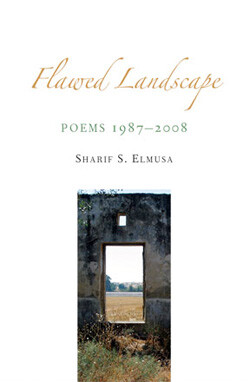The Electronic Intifada 6 October 2008

One theme that recurs in both collections is the question of identity. Many of the poets featured in these collections are Palestinians who have by birth or forced exile lived amongst other cultures, mainly western. As a result of this, their sense of their identity runs deep into the lines of their poetry. But it is the obfuscated unsettled identity, Palestine, the site of struggle that is rendered with yearning and tenderness in the poems: “I’m a Palestinian-American/ standing proudly with one foot on democracy/ and the other seeking autonomy” (p.15) writes Remi Kanazi. Palestine is no ordinary place, “the mother of beginnings, the mother of ends,” as the late great Palestinian poet Mahmoud Darwish put it. Thus, it is the extraordinariness of Palestine: its fertile and beautiful landscape, its people’s infusion with history, its her culture, preserved in the words of great poets and thinkers that make the poems in these two collections great and striking. Each of the poets has a story, memory and vision of and about Palestine to tell. It is through the prism of historic Palestine that the poems mushroom into different trajectories, where love, yearning, hope, memory, resistance, injustice and death are sites of contextual reflection.

History in the Palestinian experience is a memory stuffed with rich evocations that personify and therefore commune with it on an intimate level: “my father says, in his country, because the earth knows the scent of history, it gave the people sage” (p.69), writes Fady Joudah in Poets for Palestine. Thus, the old Palestinian generation tells the new one about their land, expanding their horizons of it and catapulting them into their own history so as to continue the struggle after them for reclamation and return. History for Palestinians is no tablet enlisting events and rituals; it is also a trajectory of discursive sentiments that reiterates the past to understand the present and hope for the future. It is a history of profound sorrows and unmitigated hopes, underlined by unjust colonial policies and unrelenting Zionist aggression: “war keeps taking, taking/ sucks marrows, marries the dead to the dead, and the living to the dead/ war is insatiable,” (p.78) writes D. H. Melhem in Poets for Palestine. The sorrows of a continuous war become worries that a pregnant mother has to do the unusual preparation to the arrival of her child, “while a mother asks/ what she will tell the child inside her/ that she wish it did not come” (p.42).
Sorrows and worries notwithstanding, sentiments of hope and defiance serve as antidotes to suffering and pain. Ultimately, the Palestinian struggle for a counter-narrative is one that spawns interrelated disparate realms to achieve liberation and emancipation, in the defiant words of Nizar Wattad in Poets for Palestine: “put it down for posterity’s sake, free P [Palestine].” There is a historical grounding that makes the freedom of Palestine special “from the West Bank to the West Coast we start/ to connect and get close, professin’ our best hopes — despite the stress blessed ‘cause it is something in our chest/ that love” (p.85).
Another poet featured in Kanazi’s anthology, Tahani Salah intermingles visions, hopes and realities tenderly, “I have this image in my head that one day when I step off this airplane, I’ll be on this land where the air is sweeter than any fruit I have tasted, and that the land is softer than any cloud I could ever imagine, and that peace was possible” (p.39). There is endurance and magnanimity in the words of the poets for Palestine: “… These bright scars/these simple losses/ they have learned to live with them, to pay them homage and burn spices for their lives/ they knead them into the landscape, these scars, these guests for supper … they survive on the sharp meat of gunfire, on land that refuses to grow anything but older,” (p.64) writes Patricia Smith. The great Palestinian poet Darwish, whose recent untimely departure is a cause of great sadness, exhorts us in “Another Day Will Come” to prepare and nourish love and hope: “and a dove will sleep in the afternoon in an abandoned combat tank if it doesn’t find a small nest in the lovers’ bed” (Poets for Palestine, p.87).
Atef Alshaer obtained his first university degree in English language and literature from Birzeit University in Palestine. He then obtained a masters in linguistics from the School of Oriental and African Studies (SOAS), University of London, where he is currently a PhD candidate in the Faculty of Languages and Cultures.
Related Links


